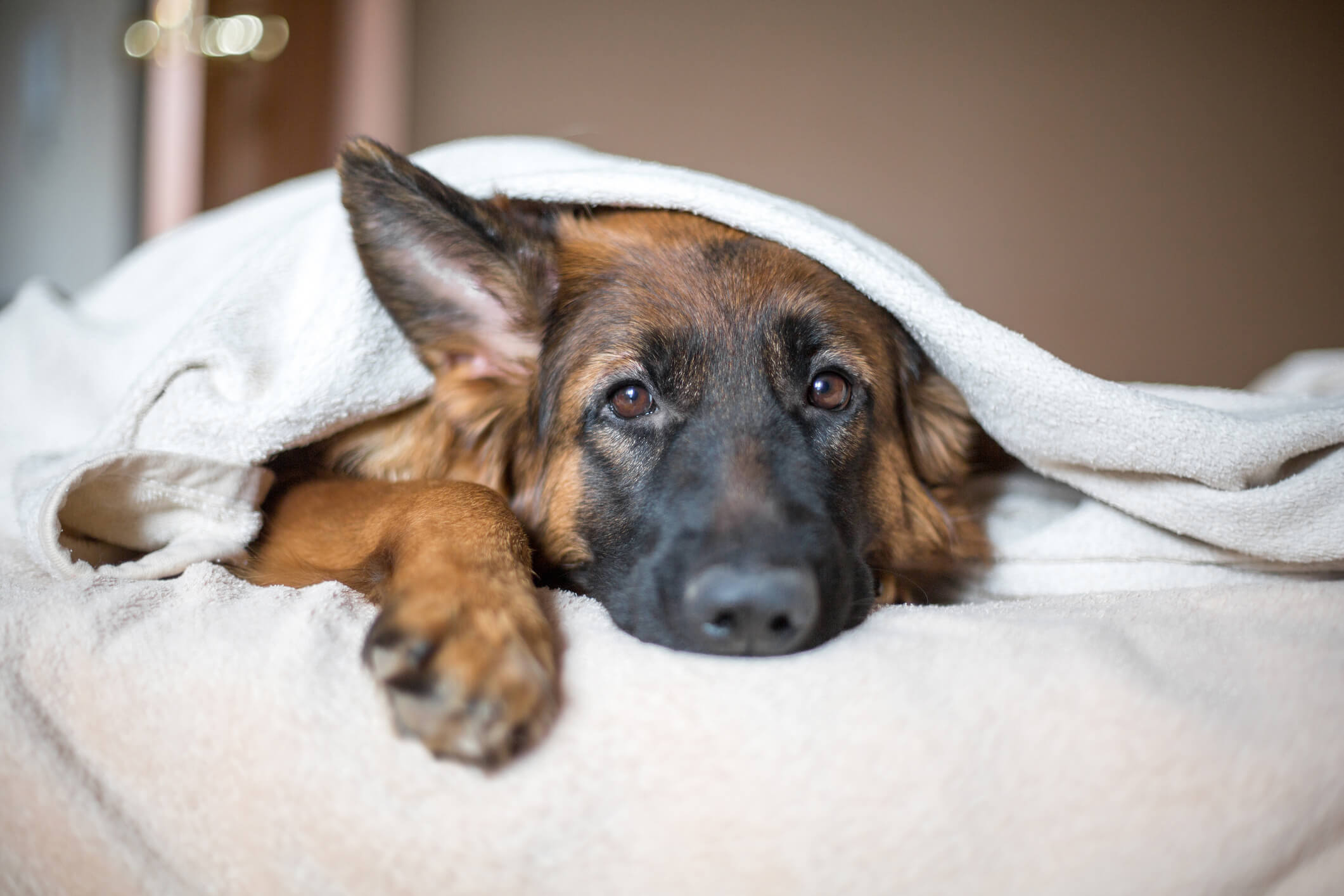
Can Cats & Dogs Catch Colds?
Cold and flu season is upon us once again. The weather gets chilly, and all of a sudden, it seems like everyone is catching a cold. But it’s not just humans—our furry companions get sick this time of year, as well.
Dogs and cats can catch their own versions of the common cold. Although their symptoms might be the same, dogs and cats get sick from different respiratory viruses and bacteria. Learn more about what pathogens are floating around and how to care for your sick companion.
Cold and flu viruses that affect dogs
Dogs can’t get sick from the cold and flu viruses that affect humans. However, dogs are still susceptible to a few respiratory illnesses that are similar to the common cold. Canine influenza (or dog flu) is one of the most common respiratory infections among dogs. It’s spread through contaminated surfaces and contact with an infected animal.
Similar to human colds, the symptoms of dog flu include:
- Coughing
- Sneezing
- Runny nose
- Congestion
- Leaky eyes
- Lethargy
- Loss of appetite
Another common flu-like disease is tracheobronchitis, otherwise known as kennel cough. Kennel cough can stem from several viruses and bacterial strains, including adenovirus type-2, parainfluenza virus, canine coronavirus and Bordetella bronchiseptica. As the name suggests, this respiratory disease is characterized by a persistent cough that creates a loud, honking sound. It’s called kennel cough because the viruses and bacteria are often transmitted in kennels, shelters and other enclosed areas.

Cold and flu viruses that affect cats
Dogs and cats can’t get sick from the same respiratory viruses. Cats may experience similar cold symptoms, but the viruses causing those symptoms are entirely different.
For example, feline herpesvirus (FHV) is a common cause of many cat colds. Since it affects the upper respiratory tract, FHV is transmitted through direct contact with an infected cat’s saliva, mucous or eye discharge. Cats with FHV experience the same symptoms associated with human colds.
Cats can also develop flu-like symptoms by contracting the feline calicivirus. In addition to coughing, sneezing and runny eyes, cats with feline calicivirus frequently develop painful ulcers on the tongue, gums, hard palate, lips or nose. Much like other respiratory infections, feline calicivirus is spread through contaminated surfaces and airborne water droplets that result from coughing or sneezing.

How to treat your pet’s cold at home
Dog and cat colds are usually minor, and they tend to resolve within one to three weeks. However, a pet parent should still consult their vet as soon as they notice cold symptoms. A vet’s diagnosis is necessary to ensure the illness isn’t something more serious. Plus, your vet can prescribe medications that help clear up the infection.
In addition to your vet’s guidance, there are many steps you can take at home to care for your sick dog or cat. Here are some easy ways to relieve your pet’s cold symptoms.
- Clean out their airways: Much like humans, our furry companions often experience a stuffy or runny nose when they get sick. Help your sick pet breathe more easily by clearing the mucous out of their nasal passages. The most effective way to achieve this is with a bulb syringe. If your pet resists, wipe their nose with a clean, damp cloth, instead.
- Create a humid living space: If your pet has a runny nose, they’re likely experiencing some congestion, as well. Humidity is key to opening up the sinuses. Set up a humidifier next to their bed or favorite pile of blankets. Alternatively, you can run a hot, steamy shower and let your pet hang out in the bathroom. Just don’t put them directly in the scalding hot water!
- Help your pet stay hydrated: Pets recovering from illness need to drink plenty of fluids. Encourage your ailing pet to stay hydrated by placing a water bowl next to their napping spot. If they don’t want to drink water, try warming up some chicken, beef or bone broth. Heat releases the broth’s aroma and may entice your pet to drink it. You can also mix a little bit of warm water into their dry food.
- Give them plenty of rest: Pets need to take it easy while they’re recovering from a cold. Sick pets often sleep more than usual because conserving energy helps the body fight off disease. Cats with a cold may need to skip a few days of chasing their toys around the house. If you have a sick pup, take their daily walk at a more leisurely pace.
- Bolster their immunity: Giving your pets immunity-boosting supplements like antioxidants or medicinal mushrooms can strengthen their immune system as it fights off the cold or flu. Once their sickness passes, continuing to administer immunity supplements can help prevent them from getting sick down the road!
No owner likes to see their pet suffer through a cold. By acting quickly, you can get a professional diagnosis and start treating your pet’s symptoms right away. Follow these at-home treatments, and your furry companion will feel better in no time!


